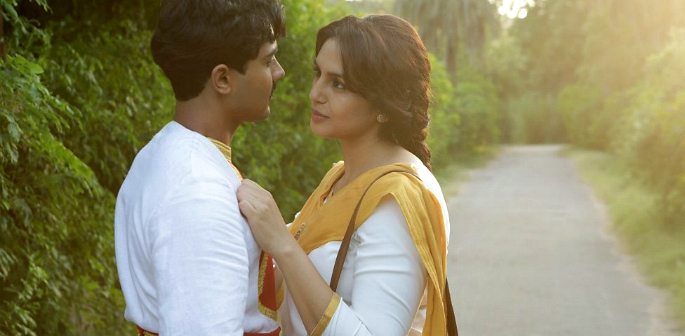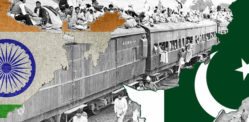"History is written by the victors"
The legendary British Asian director, Gurinder Chadha (Bend It Like Beckham, Bride & Prejudice) returns to the limelight with Viceroy’s House.
A true story that is close to her heart and the hearts of many Asians – Chadha directed, produced and wrote the screenplay for Viceroy’s House. Paying homage to those affected by the separation of India and Pakistan in 1947.
Inspired by finding her ancestor’s house on an episode of Who Do You Think You Are? and her family’s experiences with the events leading up to Partition, Chadha went onto research and create this film.
Releasing the film in 2017 is significant to marking the 70th anniversary of the partition of India and Pakistan – thus, the Indian Independence Day and the creation of Pakistan, which falls on 14th to 15th August.
The cast and team are star-studded, featuring Hugh Bonneville as the Viceroy Lord Mountbatten, Gillian Anderson as his wife and Sir Michael Gambon as General Hastings Ismay.
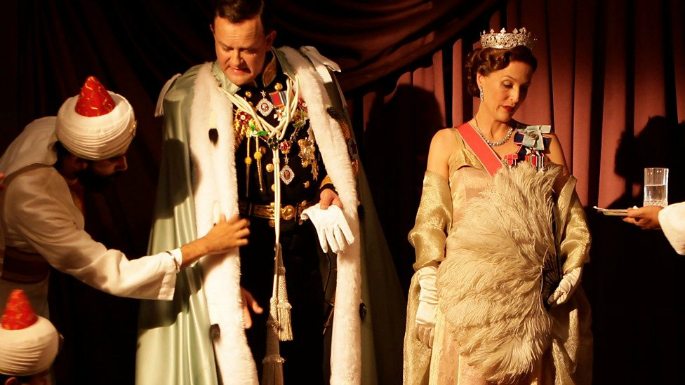
The Indian and Pakistani cast is led by Manish Dayal as protagonist Jeet, Huma Qureshi as his love interest Aalia and the iconic Om Puri as Aalia’s father. Not forgetting, a score by musical genius A. R. Rahman.
Set in 1947, Viceroy’s House is a re-telling of the final six months of the British Rule in India which had lasted for 300 years. Great grandson of Queen Victoria, Lord Mountbatten (Bonneville) moved to the great house in Delhi to ‘give’ India back to its people – making him the last viceroy.
A ‘Viceroy’ is someone who runs a country, colony or city. Mountbatten’s house is also home to around 500 Hindu, Sikh and Muslim slaves – including star-crossed lovers Jeet (Dayal) and Aalia (Qureshi). Unfortunately, the two cannot be together as he is Hindu and she is Muslim and promised to another man.
The audience is cast into watching Lord Mountbatten struggle with the idea of separating India and the journey it took to get there.
Along the way, religious leaders such as Jawaharlal Nehru (Tanveer Ghani), Muhammad Ali Jinnah (Denzil Smith) and Mohandas Karamchand Gandhi (Neeraj Kabi) are thrown in for historical and religious context.
As the movie unfolds, we are pulled into living at this monumental, and very stressful time, for all citizens of India. Tensions rise between friends and neighbours as people are asked to choose to live in either India or Pakistan.
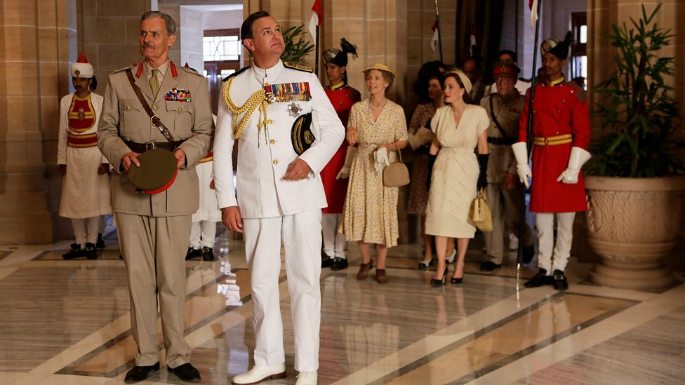
Viewers are exposed to the struggle it took to get to their new homes, the violence between races and the rising pressure the Mountbatten family were under.
Chadha opens the film with the statement ‘History is written by the victors’, yet we find that it is these personal stories of struggle, friendship and loyalty that sum up Partition for many Indians and Pakistanis even today.
The director also stated how she hopes to visit places such as London, Lahore and Delhi to watch the film with the public, hoping it will resonate with them.
Viceroy’s House leaves you considering how the events of Partition were perpetual and that tensions between cultures still do exist. The director relates the film to current affairs such as Syria and Brexit suggesting that segregation is an everlasting burden of many cultures, both in the East and West.
The contemporary relevance is important in considering the politics of division, religious extremism and societal attitudes toward migrants fleeing to gain a better life.
Overall, the film is successful in its translation of the events that occurred only 70 years ago. Having been filmed in Jodhpur only adds to the cinematic extravagance of India and the beauty of the country.
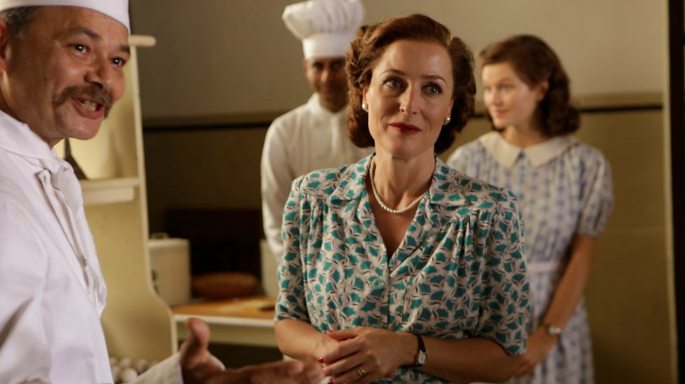
Chadha handles Viceroy’s House with respect for all religions and backgrounds involved. The film almost emanates the feeling of the tense past Asians have had and is carried on through generations in their blood.
The screenwriting is very eloquent in expressing high emotions, feelings and the zeitgeist of segregation. Despite their positions, most Asians were reduced to refugees and were fighting for their lives on their journey to freedom.
Stunning performances are given by Gillian Anderson as Lady Mountbatten and Lily Travers as her daughter Pamela. The two ladies were perfect depictions of actively caring women and headstrong in their opinions and help they wanted to give.
Lady Mountbatten had a few standout moments wherein she fired a white housekeeper for cringing at a young Asian servant and spoke to the chef to specifically ask for more Asian food on their menus.
In addition, she was adamant in maintaining peace highlighted in lines like:
“We came to give India her freedom, not to tear her apart.”
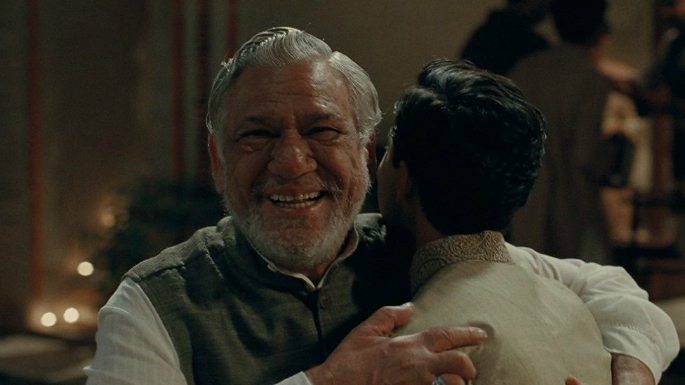
Hair and makeup for characters such as Lady Mountbatten, Gandhi and Nehru were absolutely spot on and worth noting.
One could not help but be in awe of Neeraj Kabi’s portrayal of Gandhi. Not only looking the part, Kabi expressed sheer serenity and the demeanour of a peaceful, yet fearless leader.
Of course, it must be mentioned that the late Om Puri was featured in the film – having only passed away in January 2017. In an interview with the BBC, Chadha stated: “He made shooting with him a much more pleasurable experience than just the hard grind.”
Watch the trailer for Viceroy’s House here:

Viceroy’s House is a rollercoaster of a film and is truly a masterpiece. Chadha gracefully revisits Partition, a life-changing event and something so close to her heart and all Indian and Pakistanis.
Before you watch it, have a tissue box handy and be prepared to leave the cinema feeling incredibly mesmerised and proud of your people’s past. Viceroy’s House releases from 3rd March 2017.




















































